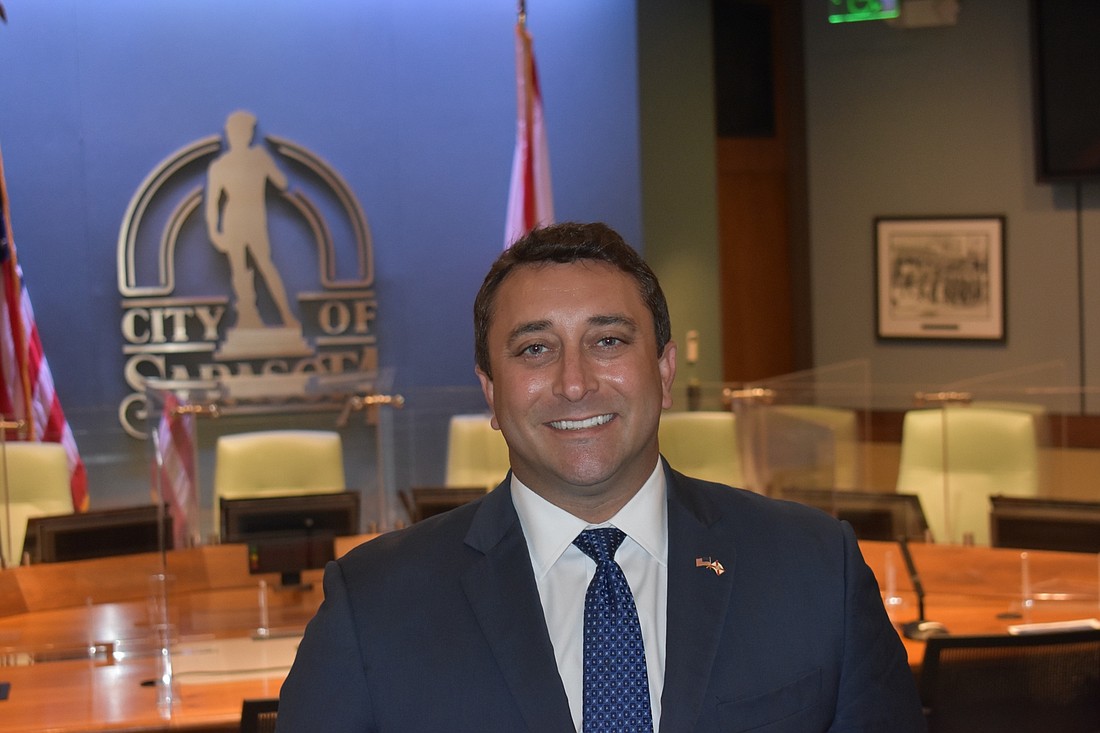- April 25, 2024
-
-
Loading

Loading

As the City Commission debated the merits and potential drawbacks of legalizing some short-term rentals as long as a long-term resident is on the property, commissioners Erik Arroyo and Liz Alpert raised the same question: Are those rentals really of concern to the city?
At a meeting Monday, a majority of the City Commission expressed support for allowing “hosted rentals” in residential areas without the seven-day minimum stay the city currently imposes on short-term rentals. Although residents have previously taken issue with short-term rentals through companies such as Airbnb, most commissioners said they didn’t think those issues were linked to situations where a homeowner remained on site while a visitor was staying on a portion of their property.
As a result, the commission voted unanimously to direct staff to prepare an ordinance that would permit hosted rentals with few regulatory requirements.
“If people start posing a problem, then we can come back and fix it, but I don’t think we have this huge issue that requires a lot of regulation at this point,” Alpert said.
Mayor Hagen Brody has been a leading advocate for legalizing hosted rentals, which he said allows residents to generate additional income without disrupting their neighbors. Brody said such rentals are already taking place within the city, and he saw no harm in altering the city’s zoning code to formally authorize the activity.
“You have someone on site who is going to, by nature, keep the situation relatively subdued,” Brody said.
Residents who rent a segment of their homes spoke at Monday’s meeting encouraging the city to change its regulations. Speakers said hosting renters is an experience that provides benefits for visitors, local businesses and homeowners who share their houses.
“I think it's fabulous,” Maurizio Colucci said. “You meet people from all over the world who come to Sarasota, and for me, it's an opportunity to tell them the story about Sarasota.”
Not all the public input at Monday’s meeting was unreservedly positive. Chris Goglia, a St. Armands resident, said he wasn’t opposed to hosted rentals, but he encouraged the city to take measures designed to limit potential detrimental effects associated with that activity. He suggested limiting the number of people who could stay at a property and the number of rooms a homeowner could rent out.
“I’m not against the practice of home sharing, but I would encourage you to limit it to the same-sized groups that are allowed when you live in that house yourself,” Goglia said.
That input resonated with at least two commissioners. Commissioner Jen Ahearn-Koch agreed with Goglia, expressing concern that hosted rentals could create unforeseen problems if the city wasn’t precise with its regulatory language. She pointed to community concerns about “hotel houses” — properties in residential areas built as vacation rentals for large groups of people — as an example of an issue that arose because the city code failed to foreclose on an opportunity to conduct commercial activity in neighborhoods.
Commissioner Kyle Battie also felt that was a valid point, though he noted the city had the power to revise any policy on hosted rentals if issues arose.
“Hotel houses only came up because of a loophole,” Battie said. “They got creative, and now it became a problem.”
Brody objected to the idea of linking hotel houses to hosted rentals, arguing that the activities were fundamentally different. Arroyo and Alpert both indicated they harbored no concerns about unintended consequences associated with hosted rentals, stating they felt there was no reason to believe the properties would pose a problem.
Once staff has finalized a proposed ordinance legalizing hosted rentals, the document will go to the City Commission for review.